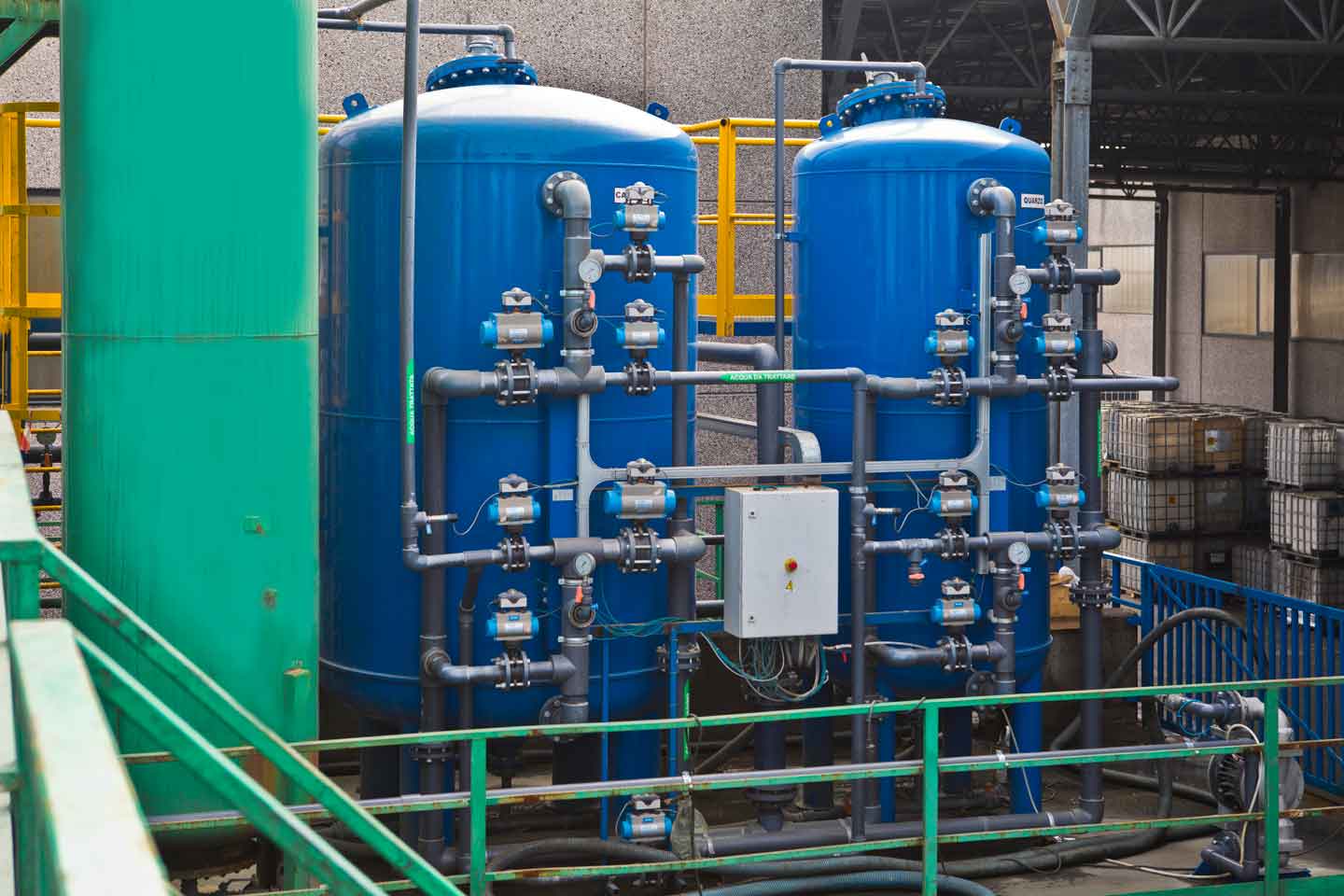
Often chemical-physical purification is not sufficient to make water suitable for discharge within tabular limits; therefore, it is necessary to have final polishing.
Polishing consists of water filtration, which allows separation of the pollutant load, by passing the fluid through pressurized filters.
These are approximately 2.5 m high columns, usually consisting of beds in series, of sand and carbon.
Among the available filters, the quartz or quartz sand filter has the function of removing particles larger than 50 µm in size, such as suspended solids and oxidized iron.
This turns out to be necessary as protection for subsequent filters; for this reason it is often installed with two carbon filters in tow that work in series with each other.

Types of Water Filtration
There are mainly four families of plants, depending on the type of filter used.
Quartz or quartz sand filters
Quartz or quartz sand filters have the function of retaining any particles suspended in the liquid to be filtered and protecting the carbon filters.
Among the filters used, they are the ones with the highest performance allowing to reach a filtration rate of 5-15 m/h.
They are equipped with pneumatic valves and pumps that perform backwashing in an automated manner, thus without any intervention by operators.
Such filters are used, for example, at filling stations and in all contexts dedicated to vehicle cleaning, as well as in the final polishing of wastewater.
Wire mesh filters
Wire mesh filters have different filtering capacities depending on the mesh grade, even reaching high results in the case ofsequential use of several meshes. They are applied to heterogeneous surfaces and have a high mechanical sealing function.
Fabric filters
Fabric filters are the most economical solution, and achieve a lower level of purification than quartz or wire mesh filters.
Because of their peculiarities, they find applications in, for example.aerospace industry, where they are used in the separation of water from oils or other fluids, and in noise reduction.
Carbon filters
Learn about Coind's activated carbon adsorption systems.
